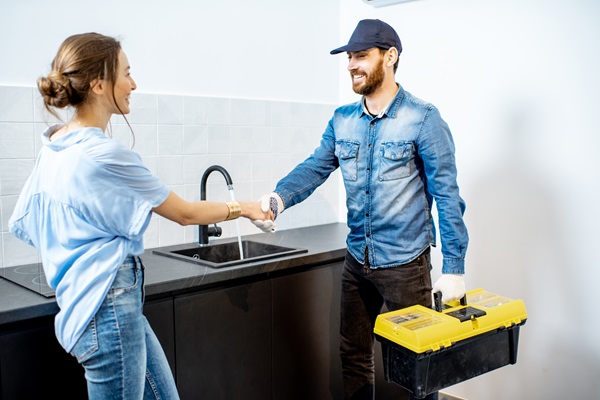Clogged drains are a common yet preventable household nuisance. They can lead to various problems, from minor inconveniences to major plumbing disasters. The key to avoiding these issues lies in proactive measures. This article delves into eight effective strategies to prevent drain clogs. Each method is crucial in keeping the plumbing system running smoothly, from simple daily habits to routine maintenance. Adopting these practices saves homeowners from potential headaches and contributes to the longevity of their plumbing systems.
Contents
Use Drain Strainers

The first line of defense against clogged drains is using drain strainers. These simple devices, available in various sizes and materials, are designed to catch hair, food particles, and other debris that can cause blockages. They are particularly useful in kitchen sinks, where food scraps are common, and in showers, where hair can quickly accumulate. Regularly cleaning these filters is crucial for their effectiveness. This simple action can significantly reduce the likelihood of clogs, saving homeowners from more complicated and costly repairs.
Strainers are not a one-size-fits-all solution. It’s important to choose the right type for each drain. A filter that can catch fine food particles in the kitchen without obstructing water flow is ideal. In bathrooms, a filter designed to trap hair is necessary. Educating family members about the importance of these filters and encouraging their use can further enhance their effectiveness. This small investment in time and effort can substantially impact maintaining a clog-free drainage system.
Regular Cleaning Routine

Establishing a regular cleaning routine is vital for preventing clogs. Over time, debris such as soap scum, hair, and food remnants can build up, leading to blockages. A weekly cleaning regimen involving flushing the drains with hot water and a mild cleaning solution can help dissolve and dislodge this buildup. This practice prevents clogs and helps eliminate unpleasant odors emanating from drains.
Combining baking soda and vinegar can be an effective alternative to chemical cleaners for those seeking a more natural approach. Pouring a cup of baking soda followed by a cup of vinegar down the drain creates a fizzing action that helps break down buildup. After letting it sit for an hour, flushing the drain with hot water completes the cleaning process. This method is environmentally friendly and safe for most types of plumbing.
Proper Disposal of Grease and Oil

One of the most common culprits of kitchen drain clogs is improper grease and oil disposal. When these substances are poured down the drain, they solidify upon cooling, adhering to the pipes and gradually causing blockages. The best practice is to allow grease and oil to cool and dispose of them in the trash. Alternatively, pouring them into a disposable container and discarding it can also be effective.
Educating household members about the dangers of grease and oil in drains is crucial. Many people are unaware of the long-term damage these substances can cause to plumbing systems. Awareness campaigns and reminders can help instill good disposal habits. For instance, placing a container near the sink specifically for grease collection can be a constant reminder. Such small steps can make a significant difference in maintaining clear and functional drains.
Mindful Flushing Habits

Toilets are often mistaken as a disposal system for various household waste. However, flushing anything other than human waste and toilet paper can lead to serious plumbing issues. Items like wipes, cotton swabs, feminine hygiene products, and even so-called “flushable” wipes can cause blockages and damage the sewage system. Educating everyone in the household about what can and cannot be flushed is essential.
Creating a list of non-flushable items and placing it in a visible area in the bathroom can serve as a helpful reminder. Additionally, providing an easily accessible trash bin in the bathroom encourages proper disposal of items that shouldn’t go down the toilet. These measures, though simple, can significantly reduce the risk of toilet clogs and the associated plumbing problems.
Use of Enzyme-Based Cleaners

Enzyme-based cleaners offer a safe and effective alternative to harsh chemical cleaners for maintaining clear drains. These biodegradable products break down organic materials like hair and grease that often cause clogs. Regularly using these cleaners can keep drains flowing smoothly without damaging the pipes or harming the environment.
Unlike chemical cleaners, enzyme-based products do not corrode plumbing and are safe for septic systems. They are particularly useful in kitchens and bathrooms, where organic clogs are common. Using these cleaners as part of a monthly maintenance routine can prevent buildup and keep drains functioning properly. Their eco-friendly nature is an added benefit, making them a preferred choice for environmentally conscious homeowners.
Avoiding Chemical Drain Cleaners

While chemical drain cleaners offer a quick fix for clogs, their long-term effects can harm plumbing systems. These products often contain harsh substances that can corrode pipes over time, leading to leaks and other serious issues. Furthermore, their environmental impact cannot be overlooked, as they can contaminate water sources and harm aquatic life.
It’s important to consider safer alternatives when dealing with clogs. Mechanical methods like plunging or using a plumber’s snake can remove blockages without damaging the pipes. For more persistent clogs, seeking professional help is advisable. Plumbers can address the problem without resorting to harmful chemicals, ensuring the longevity and integrity of the plumbing system.
Regular Professional Maintenance

Scheduling regular professional maintenance is key to preventing severe clogs and identifying potential issues before they escalate. A professional plumber can conduct thorough inspections and cleanings, ensuring the entire plumbing system is in good working order. These visits can also provide an opportunity to address any small issues before they become major problems.
Homeowners should aim to have their plumbing system professionally inspected at least once a year. During these visits, plumbers can use specialized tools and techniques to remove buildup and check for any signs of wear or damage. This proactive approach can save homeowners from costly repairs and the inconvenience of unexpected plumbing emergencies.
Educating Household Members

Educating household members about proper drain care is crucial for preventing clogs. This includes teaching them what can and cannot go down the drain, the importance of using filters, and the dangers of chemical cleaners. Creating a culture of awareness and responsibility can significantly reduce the risk of clogs.
Regular reminders and practical demonstrations can be effective in instilling good habits. Turning drain care into a fun and educational activity for families with children can help engage them in these practices. The collective effort of all household members plays a significant role in maintaining a clog-free home.
The Bottom Line
Preventing clogged drains requires adopting simple yet effective habits and routines. Each strategy plays a pivotal role, from using filters and disposing of grease properly to regular cleaning and professional maintenance. Educating household members further reinforces these practices, ensuring a smooth-running plumbing system. Embracing these eight methods saves homeowners from the hassle of dealing with clogs and contributes to the overall health and longevity of their plumbing infrastructure. Proactively, one can enjoy the peace of mind of a well-maintained home.


